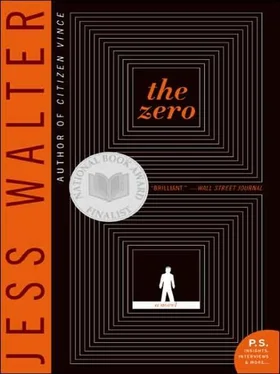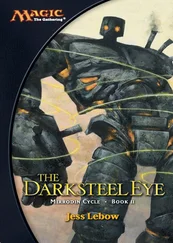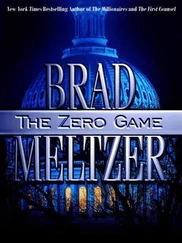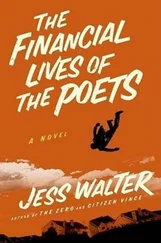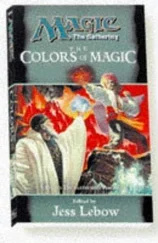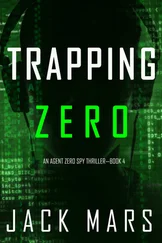The Boss shook his head as he buttoned his coat. “You want to know what caused this, Brian? All of this? I’ll tell you.” He looked around the ornate office, as if noticing it for the first time. “Ask yourself this: What causes hunger?” He didn’t wait for an answer. “Hunger.”
THE GUINNESS fit perfectly in his right hand, the red shuffleboard stone in his left. Remy looked around. “I don’t think I’m supposed to be here,” he said.
“Where you supposed to be?” asked an old man leaning against the shuffleboard table. Remy stared at him – it was Gerald Addich, the old man whose planner he’d found in the rubble. His head was dominated by those huge ears and by the spit of gray curly hair lapping his forehead. He spoke in grave, third-generation Irish, his head bowed slightly forward, as if the goddamn thing were too heavy to hold up.
“I don’t know,” Remy said. “But there’s something happening… and I should probably be…” Be what? Remy was stumped.
“Always something happening,” said the old man. “But if you don’t know where else to be… this place is as good as any. Your throw, Cap’m Hook.” The bar was small and crowded, and Remy was playing shuffleboard with this ancient little man, so pale he was nearly translucent in his vintage suit with a ruffled white handkerchief and gold-crested slippers. “Anyway, you can’t leave till I answer your question,” the old man said.
“Okay.” Remy slid the stone across the cornmealed boards.
“Hey, now, that’s got a chance,” said the old man as the disc spun and slid to the end of the boards, hung there for a moment, and finally fell. “On a planet with more gravity. Ah, you greedy old pirate,” said the old man. “You do realize that you don’t score any points if it flies off the end. I’ve explained that, right?”
Remy took a drink of his Guinness.
“Okay, then,” Addich said. “What did you ask? Oh, right. You wanted to know how a man knows if he’s done the right thing? Boy, that’s a doozy.” The old man stuck his bottom lip out and his chin slid away into his neck. “I’m going to venture that he doesn’t ever know.” The old man leaned forward. “But while he may never know if he did the right thing… I’ll tell you this: He generally knows when he’s doing the wrong thing. But that isn’t what you were really asking.”
“It’s not?” Remy asked.
“No. I think what you’re really asking, if I’m not mistaken, is about this city.”
“The city?”
“Not just the city,” said Addich. “ This city. Listen: I know that arrogant shit bird you work for thinks he invented the place, but he didn’t. I worked for Lindsay when he was Boss and every goddamned day was a disaster would’ve broke that bully you worked for. Sixty-six in Browns and the east, Negroes fighting the PRs fighting the Guineas, it was a war in there. A goddamn war. This little three-year-old, little Russell Givens – you remember Russell Givens?”
Remy didn’t.
“How could anyone forget Russell Givens? See, that’s the problem: We got institutional memory like a whore on her fourth marriage. This poor Russell, he gets shot one day from a balcony. We send fifty cops in and it’s like a tickertape parade on these poor flats, ’cept with bricks and shoes and flaming beer bottles.”
The little old guy skidded a stone down the boards and it came to rest squarely in the threes. “Look at that! Two more thick ones here, Mona!” he yelled, waving his beer. “For me and my troubled young friend – what’s your name again?”
“Remy.”
“Freddie. You know what just struck me, Freddie? Russell Givens, he’d be, what, forty-something today?” The old guy shook his head. “’Bout your age. Course everyone stays at the age they die. Russell will always be three. And I’ll always be old.”
Addich stared off for just a second. “So, yeah… Sixty-six? Transit workers go on strike… you wanna see a city shut down, put the bus drivers and subway workers on strike. Garbage men two years later, mounds of trash all over the Lower East, rotting peels, smells like the whole place died – the teachers in O-Hill, every union in the city woke up the same day and said, ‘Let’s shut this son-of-a-bitch down.’ Rockaways, Bushwick, South J, Corona – everyplace bubbling and melting in the heat of summer and it seems like every block got poorer and more racist and more violent every day – city was burning up. And we had crazy Muslims then, too, the Five-Percenters killing Jews up the heights, till someone shot their boss.” He grabbed Remy’s arm. “City was a tinderbox. Your turn, kid.”
Remy slid a stone and again it rode the cornmeal to the end, hung on a little longer than the first throw, and then fell.
“Firemen had to carry sticks and guns to fires. People would set fires just to get a crack at beating a fire crew – used to steal their equipment, their pants, their trucks. We send in cops to protect the fire crews, and then we gotta send more cops to protect the cops we sent to protect the firemen we sent to put out the fire. We’re gettin’ three, four fires a day, and before too long the trucks just stop going to some neighborhoods… whole blocks burning down, and right in the middle of it, like some stupid weather girl telling you it’s hot in August, goddamn Kerner comes along to tell us the one thing we know: We got racist cops and crowded ghettos.”
The old man stepped forward and threw another stone, gliding it along the boards until it came to rest against his first throw. Just then a waitress arrived with two more beers. “Pay the girl, Bluebeard. And tip her like you had a chance with her.”
Remy handed the waitress a ten.
“And the hippies!” The old guy shook his head and looked up at Remy, his eyes like tiny polished stones. “Village looked like a goddamn circus. Radicals at Columbia running around yelling, ‘Against the wall, mothers – ’ protests every day, protesters protesting protests. And not like today, these ladies in jogging suits marching on their lunch hour. We had ex-cons with bricks. Honest-to-God agitators. Cops didn’t know whose heads to crack, so they just cracked ’ em all.” He shook his head. “Cracked every goddamn one. Your throw.”
Remy concentrated so that this stone wouldn’t go off the edge, and threw it about halfway, along the right rail. It drifted off the boards, hung a moment, and dropped.
“You have got to be the worst goddamn shuffleboard player I ever seen,” said the old man.
“Bottom line, I suppose it was garbage that killed Lindsay. And in the end it all turned to garbage. The whole city was garbage – schools bad, services bad, crime up, parks and subways a horror show, corrupt cops, and everything we did made it worse. Pay the sanitation workers more to get the garbage, and the teachers strike. Send cops to stop the protests and they beat the protesters, which causes more protests, so we gotta send more cops.”
He turned, grabbed Remy’s arm, and spoke in a low growl: “This city – is a big goddamn place, kid. A monster. You can’t imagine all the stuff that can go wrong here in a day. This was the city Lindsay ran, the city I had a part in running. For ten goddamn years this place was unlivable. It was a sinkhole. An ungoddamnlivable sinkhole. And then you know what happened? Do you?”
Remy waited. The old man got even closer, so near they could’ve kissed. “It got worssse, ” he hissed. “Seventy-six… seven? Bottom rung of hell. Drugs. Gangs. Bankruptcy. I almost moved myself, four, five times.” Then the old man leaned back and thought a moment. “But then something happened. Something… unexpected. A miracle.”
“What?” Remy asked.
Читать дальше
